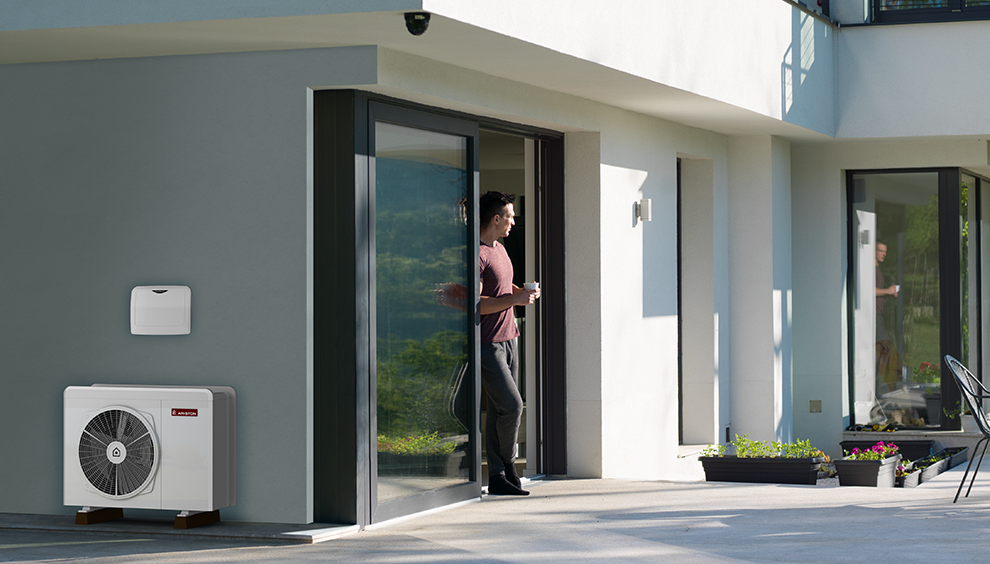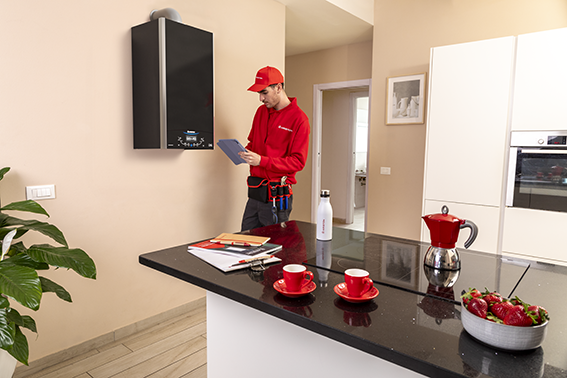All the advantages of a heat pump system
The installation of a heat pump system in the home represents a significant break from more traditional heating systems.
Not only do these solutions drastically reduce utility bills and carbon dioxide emissions, but they also bring with them a number of benefits beyond just economic and environmental aspects. Therefore, let us see in this article all the pros and cons of the heat pump system.
1. High energy efficiency and bill savings
Heat pumps harness heat from external sources, such as air, water and soil, for home heating and/or domestic hot water production. Depending on the source, there are different types of heat pumps: air-to-air, air-to-water, water-to-water and ground-to-water pumps.
These systems require electricity to operate, but the thermal energy they produce is up to five times the energy consumed. This translates into significant savings in utility bills in modern, sustainable homes.
2. Reducing environmental impact
Opting for a heat pump means making a conscious choice toward reducing your carbon footprint. In fact, these systems use clean energy sources, contributing significantly to the reduction of CO2 emissions. Their efficiency is not limited by the temperature of the external source, making them extraordinarily adaptable and capable of high performance in various environmental conditions.
3. Incentives and tax breaks
In many countries, heat pumps are supported by significant incentives, such as tax deductions, that make the investment less financially demanding
4. Increased property value
Installing a heat pump not only improves the comfort and sustainability of the home but also increases its market value. In fact, the presence of this system can elevate the property's energy rating by up to two classes, making it more appealing to potential buyers or renters.
5. Acoustic comfort
Contrary to popular belief, modernly designed heat pumps provide considerable acoustic comfort. There are models that operate with extremely low noise levels, making them almost inaudible and providing a quiet, disturbance-free environment.
6. Technology
Heat pump technology has seen significant advances in recent years, both in terms of efficiency and environmental impact.
Newer models are equipped with intelligent controls that optimize energy use based on the actual needs of the home, further improving efficiency and comfort.
Furthermore, compatibility with renewable energy systems, such as photovoltaic panels, enhances the system's sustainability, bringing homes closer to achieving zero emissions.
7. Installation versatility
Their flexibility in installation, suitable for both new constructions and renovation projects, allows them to adapt to various housing contexts, offering solutions tailored to each specific need.
This versatility, combined with the possibility of use in various climate scenarios, make heat pumps an ideal solution for ensuring home comfort in every season.
What are the disadvantages of a heat pump?
Despite the many advantages offered by heat pumps, there are some aspects that could pose challenges or limitations for certain users.
One of the main obstacles relates to the initial cost of installation, which can be significantly higher than with conventional heating systems. This initial investment, however, tends to be offset over time through energy savings and available tax deductions.
Another factor to consider is the need for adequate insulation in the home. Heat pumps are extremely efficient in well-insulated buildings, but their effectiveness may decrease in structures with poor insulation, resulting in higher energy consumption and reduced thermal comfort.
In addition, extremely low temperatures can affect the performance of some heat pumps, especially in air-to-air and air-to-water models. Although recent technologies have greatly improved the ability of heat pumps to operate effectively even in extremely cold conditions, it may be necessary to supplement the system with an additional heat source in some particularly cold geographical areas.
Finally, the installation of a heat pump requires careful planning and sometimes structural modifications to the building. The selection of the most suitable type of heat pump and its proper installation are crucial to ensure maximum system performance, thus requiring the intervention of experienced professionals in the field.
Despite these issues, heat pumps remain a highly beneficial solution for many due to their efficiency, sustainability, and ability to provide optimal living comfort while respecting the environment.
Conclusion: is the heat pump a good choice for your home?
Considering both the benefits and potential obstacles, adopting a heat pump system is a thoughtful decision geared toward the future of home comfort and environmental sustainability.
Although the initial investment and the need for adequate insulation may pose challenges, the long-term benefits offered in terms of energy efficiency, cost savings and reduced environmental impact amply justify the choice.
Careful planning and advice from experienced professionals are essential to maximise the benefits of this technology, ensuring optimal installation and perfect adaptation to the specific needs of the home.
Ariston remains committed to the development of innovative technologies to provide heat pumps that combine great performance, sustainability, and reliability, guiding its customers toward increasingly conscious and environmentally friendly choices.




